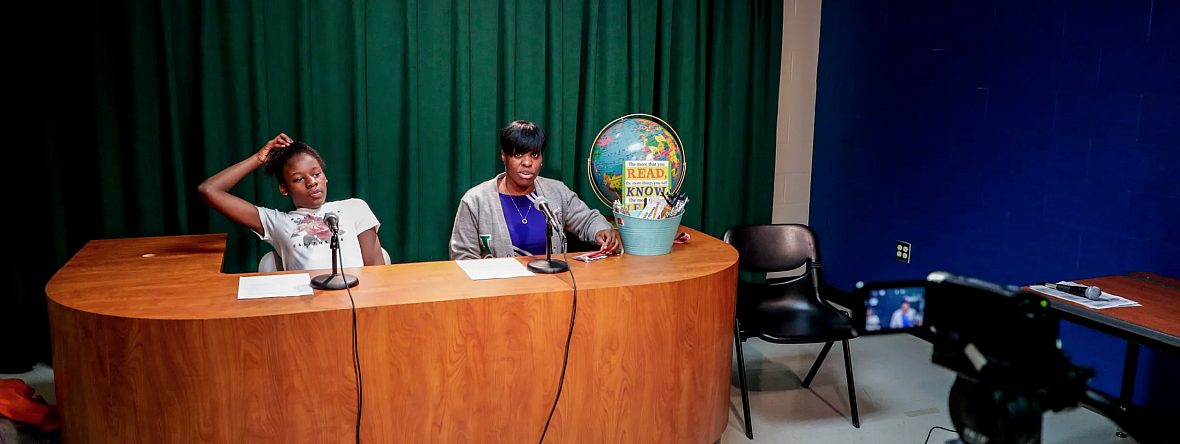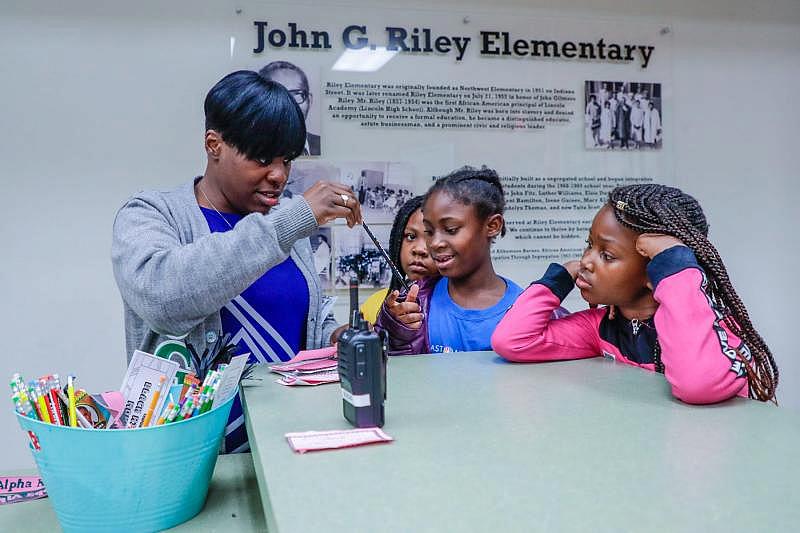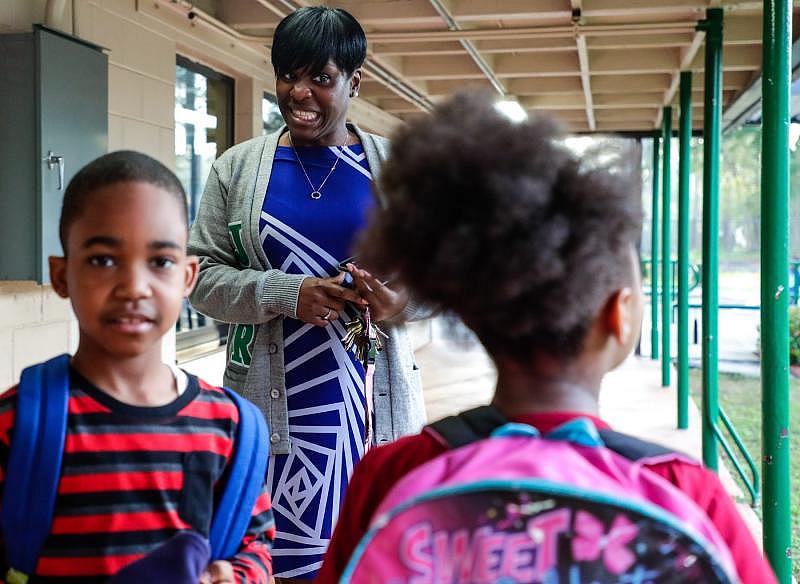At 32304's Riley Elementary, staff 'serve a greater need than just educating the mind'
This story was produced as a project for the 2019 National Fellowship.
Other stories in this series include:
13 million missed meals in Leon: 'Meal Deficit Metric' aims to track hunger across Florida
Coronavirus: Lack of access to tests hampers care in Tallahassee's poorer neighborhoods
Going granular: Why deep dives into health data can help kids in poor zip codes like 32304
'No access': Poor, isolated and forgotten, kids of 32304 see their health care compromised
Distanced from assistance: Rampant health problems in Gadsden mirror coronavirus risk factors
‘Our kids aren’t growing up’: Epidemic of gun violence scars, kills Tallahassee’s Black children

Riley Elementary Principal April Knight knows the Springfield Apartments at 1700 Joe Louis St. It was home for more than a decade.
Raised by a single mom in Apt. No. 8, “I’m very familiar with the barriers that impact our learning community,” she said.
Those barriers are out of children’s hands. But they live behind them.
Knight sees the Riley parents trying to make ends meet, juggling multiple jobs. They often lack transportation or cell phones, Knight explained, hindering trips to the pediatrician, missing behavioral health meetings with the school counselor because of a missed cell phone bill — or barely scraping enough cash for a co-payment.
“We have so many babies that come into kindergarten and have not had their shots,” Knight said.
Kids’ education and their health often intersect in ways only those on the ground every day like Knight know.
Whether it’s the school nurse or the school social worker, Riley’s staff are often the compass that not only helps kids directly with health concerns but informs their parents on how to navigate the health care system.
Knight says oral health – cavities and poor hygiene – is a critical health problem among her Riley Bears. The school offers free dental care screenings to second graders. But it's not enough.
“That’s something we need K through 5,” she said.
While tutoring a little girl in reading last school year, Knight, a former reading coach, noticed the girl’s eyes couldn’t focus on the words. Later, her parents told Knight they couldn’t afford to pay for a pair of glasses that Medicaid wouldn’t fully cover.
Knight previously worked at Gilchrist Elementary, a school in Tallahassee’s affluent northeast. Just 31% of Gilchrist’s students receive free or reduced lunch. At Riley, 85% of students receive free or reduced lunch, an indicator of household poverty.

“Gilchrist parents are knowledgeable about their options,” Knight said. “Every parent I have talked to at 1700 Joe Louis Street wants information on how to utilize resources. A big misconception is they don’t care.”
They just don’t know.
Every school morning, Knight asks each child at drop-off if they've had breakfast. If the answer is “no,” it doesn’t matter if they’re late. She’ll send them to the cafeteria, and radio-chat with other administrators to make sure they get there.
Household dynamics — whether it’s a single-parent household or a mixed-relative household — also play a significant role: Regular meals and kids’ checkups are often skipped or overlooked amid parent’s extra strains.
“It’s heartbreaking,” said David Chambers, dean of students. “There’s been a lot of times where we have to be the surrogate parent. We serve a greater need than just educating the mind.”

Reach Nada Hassanein at nhassanein@tallahassee.com or on Twitter @nhassanein_.
[This article was originally published by The Tallahassee Democrat.]

